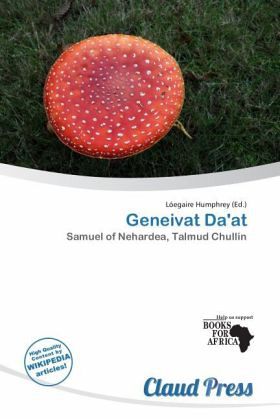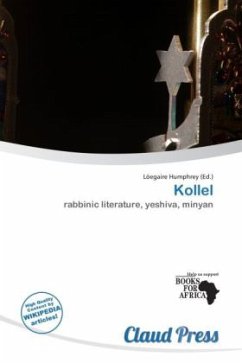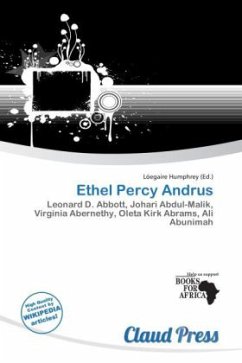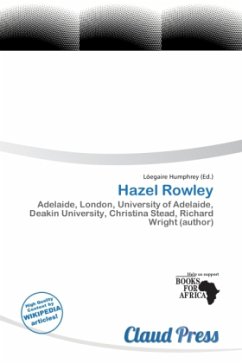
Geneivat Da'at
Samuel of Nehardea, Talmud Chullin
Herausgegeben: Humphrey, Lóegaire
Versandkostenfrei!
Versandfertig in 6-10 Tagen
23,99 €
inkl. MwSt.

PAYBACK Punkte
12 °P sammeln!
Please note that the content of this book primarily consists of articles available from Wikipedia or other free sources online. Geneivat da'at (Hebrew: , lit. "stealing of the mind/knowledge") refers to a kind of dishonest misrepresentation or deception. It is a concept in Jewish law and ethics, mobilized in a wide spectrum of interpersonal situations, especially in business. It is attributed to the Talmudic sage Samuel of Nehardea in Talmud Chullin (94a): "It is forbidden to mislead people, even a non-Jew." Indeed, one Midrash states that geneivat da'at is the worst type of theft. Geneivat da...
Please note that the content of this book primarily consists of articles available from Wikipedia or other free sources online. Geneivat da'at (Hebrew: , lit. "stealing of the mind/knowledge") refers to a kind of dishonest misrepresentation or deception. It is a concept in Jewish law and ethics, mobilized in a wide spectrum of interpersonal situations, especially in business. It is attributed to the Talmudic sage Samuel of Nehardea in Talmud Chullin (94a): "It is forbidden to mislead people, even a non-Jew." Indeed, one Midrash states that geneivat da'at is the worst type of theft. Geneivat da'at is the worst because it directly harms the person, not merely their money.cite_ref-ET_0-0[1]cite_ref-1[2] In rabbinic exegesis, the law is associated with Gen. 31:26 and II Samuel 15:6.












